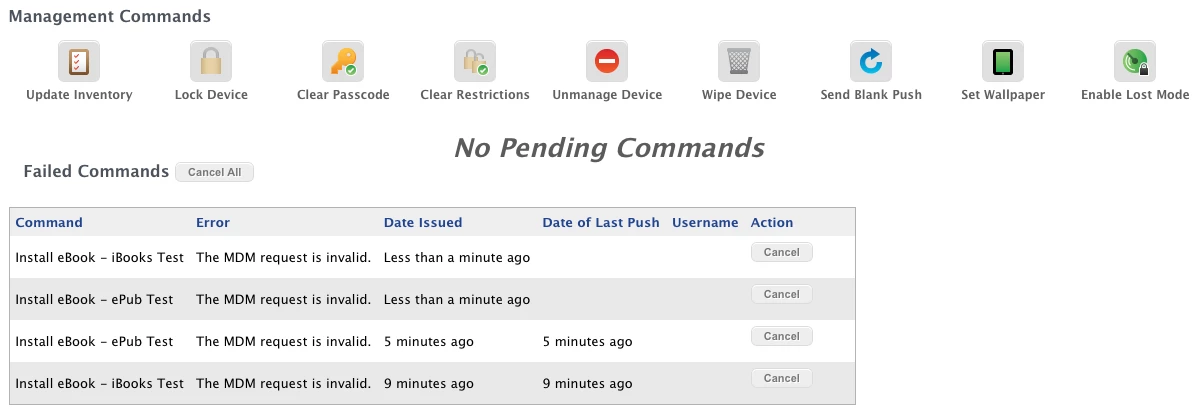Hey there,
I was hoping someone could clarify some stuff about In-House eBooks.
We have a number of teachers who are using "iBooks Author" to create their own ebooks, and they have enquired about the possibility of distributing these to their classes.
We are trying to be as "device based" as possible. For our iPad carts, we don't use Apple IDs & we have the "lock account settings" restriction in place.
I was looking at the Jamf Administrator's Guide, and it says (under requirements):
*To distribute an in-house eBook, the eBook must be one of the following types of files:
ePub file (.epub)
iBooks file (.ibooks)
PDF
To install an ePub file, you need:
A mobile device with iOS 4 or later and iBooks 1.0 or later
A computer with macOS v10.7 or later and an application to view eBooks
To install an iBooks file, you need:
An iPad with iOS 5 or later and iBooks 2.0 or later
A computer with macOS v10.9 or later and iBooks 1.0 or later"*
I am aware that I need an Apple ID to distribute content from the iBooks Store, but I was hoping I could distribute "homemade" ebooks in-house (without an Apple ID).
I've tried testing both distribution methods (Self Service & Automatic) and in both of these cases, the pdf installs without issue, but both ePub and iBooks format give me an error that "The MDM request is invalid" (see attached screenshot 
I've also noticed that if I open the url to the book in Safari, a link pops up to "open in iBooks", which then imports the book without requiring an Apple ID...
Am I missing something, or is this expected behaviour?




